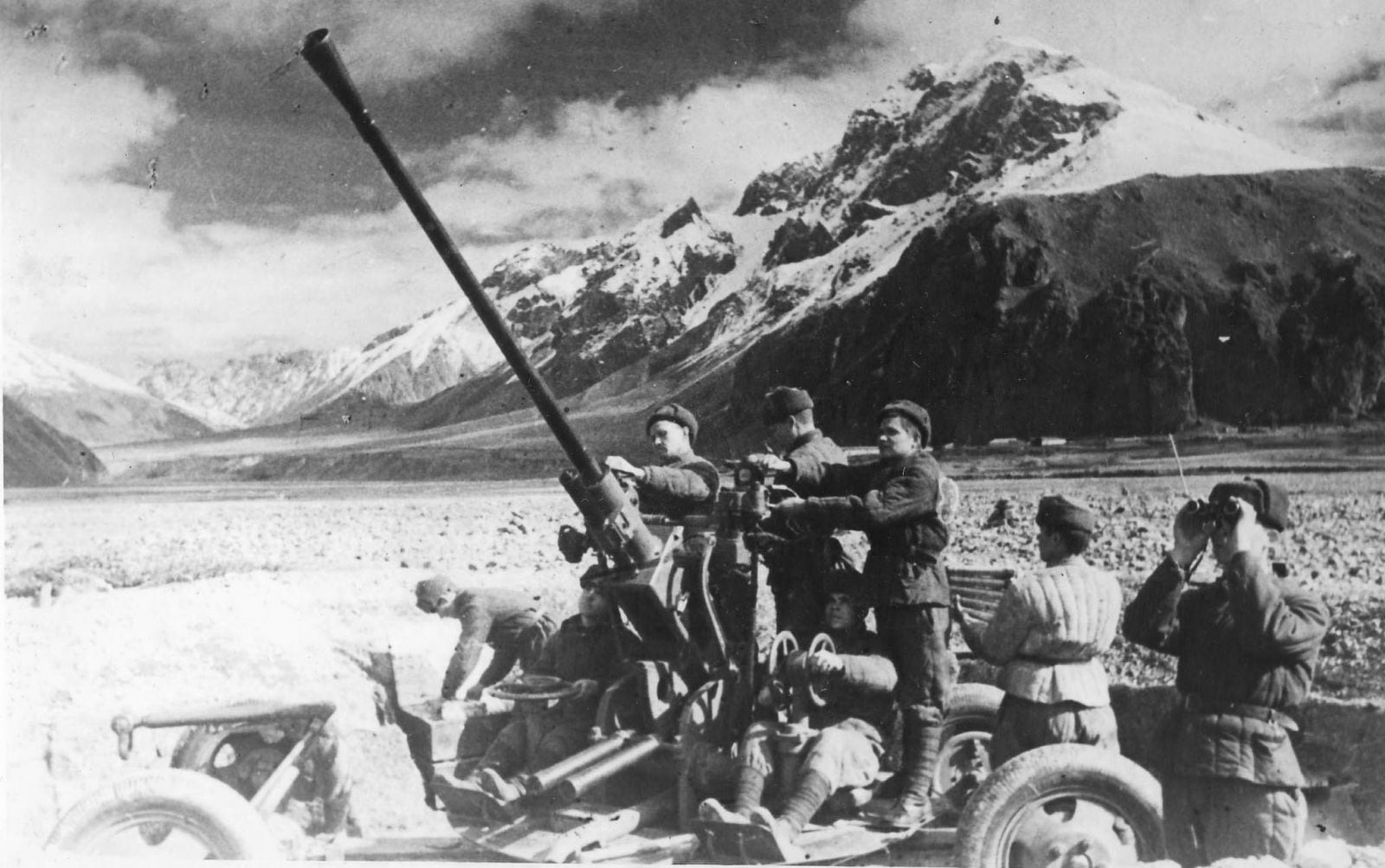Německo s Ruskem mělo dohodu o neútočení. Kdyby to nedopadlo tak, jak to dopadlo, tak tu nikdo z nás není.
25.7. 1942 The Battle of the Caucasus began
Categories: Second World War , Calendar

Hitler planned to take over the oil fields around Baku. However, he failed to do so and the so-called Battle of the Caucasus ended in a fiasco for the Third Reich. Hitler almost had a nervous breakdown.
Already in January 1942 , Hitler had declared in a conversation with the Japanese ambassador Oshima that the summer would be a decisive stage in the military conflict with the Soviets. He decided to strike in the Caucasus, to penetrate to oil, to Iran and Iraq, to destroy Moscow and Leningrad.
Thus, in the summer of 1942, Hitler launched Operation Blau, which was an advance into the Caucasus and Central Asia. In the last week of July, Rostov-on-Don fell, and by mid-August German tank units had reached the foothills of the Caucasus - the Baku oil fields were within reach. The way was also open for the Germans to attack Stalingrad. So far, the German army had been successful. It gradually conquered Stavropol, Krasnodar and Elbrus.
"In reality, however, the war was beginning to turn in favour of the Soviets. By autumn, the Wehrmacht was already heavily overstretched. For its supply lines were long, its recruits were getting younger and more inexperienced, and its generals had turned into men who saying "yes" to Hitler, "nodding donkeys" as Albert Speer called them," writes Anna Reid in Leningrad.
Meanwhile, the Red Army began to pull itself together. Unlike Hitler, Stalin was beginning to realize that it was better to leave military decisions to professionals. Increasingly, he listened to them, and in October his existing powers were given to the political commissars who had hitherto controlled the every move of the commanding officers. Supply under the Lend-Lease Act also began to flow overland via Vladivostok.
Hitler's plan to dominate the oil fields around Baku was thus becoming increasingly unrealistic. Meanwhile, part of the German army was only 150 kilometres away from this strategic location. "However, what some generals pointed out to Hitler occurred. On this stretch of the front, the tanks began to run out of diesel. The failure to capture Baku, with the subsequent defeat of the Germans at Stalingrad, meant that the oil artery on the Volga remained in Soviet hands," writes Vladimir Liska in his book Adolf Hitler's Greatest Secret.
After the defeat at Stalingrad, Hitler almost had a nervous breakdown. He went into fits of rage over every little thing and began to grey rapidly and generally deteriorate physically. Moreover, he had to give the order to retreat from the Caucasus, because even here his troops were threatened with encirclement, as had happened at Stalingrad. His plan to seize the oilfields there had backfired and the Third Reich had to give up its dream of oil self-sufficiency.
Sources: Anna Reid, Leningrad, Vladimir Liska, Adolf Hitler's Biggest Secret, www.wikipedia.org, https://vestnikkavkaza.net/
The article is included in categories:
Post
Dohoda nácků z komunisty znamenala začátek druhé světové války. Ostatně Polsko a pobaltské státy to okamžitě pocítily. 40 let komunismu, tady zničilo statisíce životů, přetrhalo vztah lidí k půdě a to jak to tady dnes na polích vypadá, je toho důsledek. Těžko se tak dohadovat co je horší, zda komunismus nebo nacismus. Jsou to dvě strany jedné mince, stejná propaganda, lágry, vraždy a lži.
Nejhorší na tom je, že 40let se ta,, rudá pravda'' dávala lidem žrát pěkně na husto klackem a teď 30 roků po listopadu jsou tendence znova lhát, jak Kreml píská. Putlerčíci mají v Česku žně.







